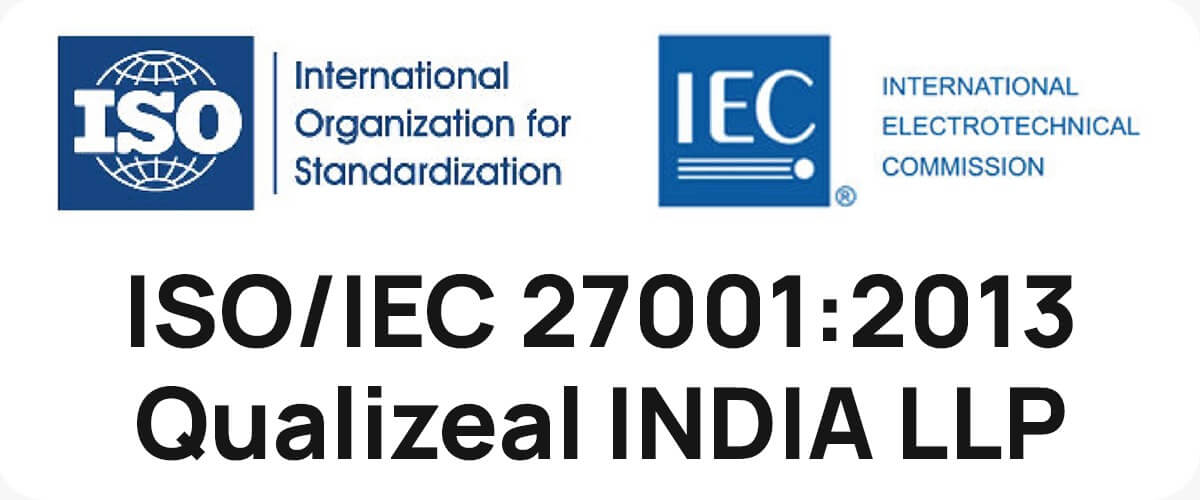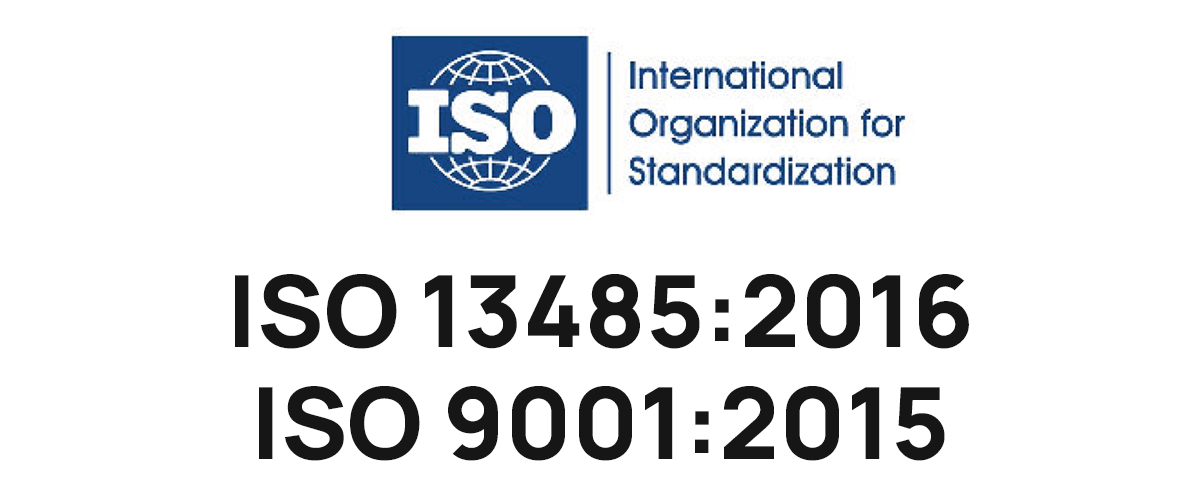Embarking on the journey of digital transformation demands a steadfast commitment to excellence, and the numbers speak volumes. According to a comprehensive study conducted by the International Data Corporation (IDC), organizations that prioritize Quality Engineering Services witness a remarkable 40% reduction in overall development costs and a substantial 30% increase in customer satisfaction rates. These statistics, rooted in rigorous industry analysis, underscore the pivotal role that quality engineering plays in shaping the success trajectory of modern businesses.
As we delve into the dynamics of this transformative landscape, it becomes evident that investment in quality engineering is not just a prudent choice but a strategic necessity. In this blog, we unravel the compelling reasons behind the imperative to invest in Quality Engineering Services for the enduring prosperity of your organization.

Unlocking Success: The Strategic Imperative of Quality Engineering Services
In the fast-paced realm of technology-driven enterprises, the quest for excellence is an ongoing pursuit, and at its core lies the indispensable role of Quality Engineering Services. As we navigate the intricate landscape of digital innovation, a compelling narrative emerges from the data trenches. According to a meticulous study conducted by the International Data Corporation (IDC), organizations that choose to prioritize Quality Engineering Services are reaping substantial rewards. The statistics are striking— a notable 40% reduction in overall development costs and an impressive 30% surge in customer satisfaction rates.
These figures, extracted from the thorough analysis by IDC, not only validate the impact of quality engineering but also underscore its significance as a linchpin for success in the contemporary business arena. It’s not merely about optimizing processes; it’s about strategically positioning your organization for resilience and prosperity in the competitive market.
In this exploration, we delve into the profound reasons why investing in Quality Engineering Services is no longer a discretionary move but a strategic imperative for any organization aspiring to thrive in the dynamic landscape of the digital age.


Navigating the Digital Landscape
In the labyrinth of digital transformation, where every organization strives to carve its niche, the significance of Quality Engineering Services becomes increasingly apparent. Beyond the enticing statistics lies a deeper narrative— the need for adaptability and resilience in the face of evolving technological landscapes. Today, technology is not just a tool; it is the essence of business operations. IDC’s study not only provides a glimpse into the cost-saving and customer satisfaction aspects but also serves as a compass guiding us through the nuances of the digital landscape.
Quality Engineering Services, as revealed by the IDC findings, are not merely about minimizing expenses. They form the backbone of innovation, ensuring that the digital solutions created are not just functional but exceptional. As organizations grapple with the demands of a globalized market and dynamic consumer expectations, the ability to swiftly adapt and deliver top-notch products becomes a defining factor in success. Quality engineering emerges as the silent force ensuring that software, applications, and digital platforms not only meet but exceed user expectations.
Consider this: a seamless user experience is no longer a luxury but a prerequisite for customer retention. In an era where a few seconds of lag or a minor glitch can translate into user dissatisfaction, the role of Quality Engineering Services in enhancing user experience becomes paramount. It’s not just about functional testing; it’s about creating an ecosystem where end-users can seamlessly interact with technology, fostering loyalty and positive brand perception.
Moreover, the IDC statistics shed light on the correlation between quality engineering and customer satisfaction. The 30% increase in customer satisfaction rates is a testament to the fact that quality engineering is not an isolated practice but a customer-centric strategy. In a landscape where customer loyalty is as fickle as user interfaces are intricate, organizations cannot afford to underestimate the impact of quality on the end-user.
In essence, the second layer of our exploration into Quality Engineering Services reveals that it’s not merely a cost-cutting measure; it’s a strategic investment in a future where technology is not just a solution but a seamless, intuitive, and integral part of our daily lives. As we navigate this digital terrain, the imperative of quality engineering becomes a compass guiding organizations through the intricacies of technological evolution, ensuring they don’t just keep pace but lead the way.


Building a Resilient Foundation
As we traverse the digital landscape, the role of Quality Engineering Services expands beyond enhancing user experience; it lays the foundation for resilience. In an era marked by cyber threats, stringent regulatory requirements, and ever-evolving technology stacks, the ability of an organization to weather storms is directly linked to the robustness of its digital infrastructure. IDC’s study underscores this critical aspect by revealing a substantial decrease in overall development costs— a 40% reduction to be precise. This is not just a financial boon; it signifies the creation of a resilient, cost-effective, and future-ready technology ecosystem.
The significance of this reduction in development costs goes beyond the financial ledger. It is indicative of the efficiency injected into the development life cycle by Quality Engineering Services. Through meticulous testing, streamlined processes, and a proactive approach to identifying and rectifying issues, organizations can cut down on the time and resources traditionally spent on troubleshooting post-deployment. This efficiency not only accelerates time-to-market but also fortifies the software against potential vulnerabilities.
In the realm of digital solutions, the cost of addressing issues post-release is not merely monetary; it extends to brand reputation and customer trust. An application plagued with glitches or vulnerabilities not only incurs expenses in terms of emergency fixes but can also result in irreversible damage to brand credibility. Quality Engineering Services, as revealed by IDC’s insights, act as a shield against such risks, preemptively identifying and rectifying potential pitfalls in the development phase.
Consider the evolving landscape of data privacy and compliance. With regulations such as GDPR and CCPA setting stringent standards, organizations face the dual challenge of delivering innovative solutions while ensuring data security and compliance. Quality Engineering Services, embedded in the development process, ensure that applications are not just functional but also adhere to the highest standards of security and compliance. This proactive approach not only mitigates legal risks but also cultivates a culture of trust among users who are increasingly conscious of data privacy.
In conclusion, the reduction in overall development costs, as highlighted by IDC’s study, is not just a financial advantage; it symbolizes the creation of a resilient and adaptive digital infrastructure. Quality Engineering Services, therefore, emerge as the architects of this resilience, fortifying organizations against the uncertainties of the digital landscape. As we traverse this section of our exploration, it becomes increasingly evident that the investment in quality engineering is not just a line item in the budget; it is the cornerstone of a technology strategy that is both agile and enduring.


Futureproofing Through Innovation
In our expedition through the multifaceted realm of Quality Engineering Services, we arrive at a pivotal juncture—innovation. Beyond mitigating risks and enhancing efficiency, Quality Engineering becomes the catalyst for innovation, driving organizations towards a future-proofed digital landscape. IDC’s compelling statistics not only validate the cost-effectiveness and resilience but also point towards a paradigm where Quality Engineering is synonymous with continuous innovation.
As technology evolves at an unprecedented pace, organizations are compelled to not just keep up but to lead the innovation curve. Quality Engineering Services, as illuminated by the IDC study, play a central role in this innovative ecosystem. By fostering a culture of continuous improvement and proactive problem-solving, these services empower organizations to push the boundaries of what technology can achieve.
Consider the iterative nature of software development. Traditionally, the post-release phase involved a series of patches and updates to address unforeseen issues. However, in the age of Quality Engineering, this reactive model transforms into a proactive one. Through comprehensive testing methodologies, including automation and AI-driven testing, potential issues are identified and rectified before they reach the end-users. This not only ensures a seamless user experience but also frees up resources for organizations to focus on what matters most—innovation.
The agility provided by Quality Engineering Services is a strategic asset in an era where digital disruption is the norm. Organizations that leverage these services find themselves not just adapting to change but driving it. The ability to swiftly respond to market dynamics, consumer preferences, and emerging technologies positions these organizations as innovators rather than followers. The IDC’s statistics, showcasing a 30% increase in customer satisfaction rates, further underscore that innovation is not just about technological advancements but also about meeting and exceeding user expectations.
Furthermore, as we gaze into the future, the role of Quality Engineering becomes even more pronounced in emerging technologies like AI, blockchain, and IoT. These transformative technologies bring both opportunities and challenges, and Quality Engineering Services act as the vanguard, ensuring that the potential benefits are maximized while risks are mitigated. By embedding quality considerations into the very fabric of technological advancements, organizations future-proof their innovations, creating a sustainable and forward-looking digital strategy.
In conclusion, the statistics presented by IDC paint a vivid picture of Quality Engineering Services not just as a reactive necessity but as a proactive force driving innovation. As organizations embark on the journey towards a digitally enriched future, the strategic imperative of investing in Quality Engineering becomes not just evident but imperative. It’s a journey that transcends cost reduction, resilience, and efficiency—it’s a journey towards an innovative future where quality is not just a measure but a guiding principle.


A Call to Transformative Action
As we conclude our exploration into the strategic imperative of Quality Engineering Services, the resonance of IDC’s statistics lingers—a testament to the transformative power of investing in quality. Beyond the reduction in costs, the fortification of digital infrastructure, and the fostering of innovation, lies a broader narrative— the journey towards unlocking enduring success in the digital age.
Quality Engineering Services are not merely a set of practices; they are the architects of a future where organizations don’t just survive but thrive in the dynamic landscape of technology. The 40% decrease in overall development costs signifies not just financial prudence but the ability to allocate resources towards strategic initiatives. The 30% increase in customer satisfaction rates is not just a metric; it is the echo of a user-centric approach that goes beyond meeting expectations to exceeding them.
In the ever-evolving tapestry of technology, the role of Quality Engineering becomes a thread that weaves together resilience, innovation, and customer delight. Organizations that recognize this strategic imperative position themselves not as bystanders but as pioneers in the digital revolution.
As you contemplate the path forward for your organization, consider this: Quality Engineering Services are not an expense; they are an investment in a future where technology is not just a tool but a catalyst for growth. The journey towards success in the digital age begins with a commitment to quality— a commitment to delivering solutions that not only meet the needs of today but also anticipate the challenges of tomorrow.
If you’re ready to embark on this transformative journey, we at QualiZeal stand ready to be your partners. Our expertise in Quality Engineering Services goes beyond the conventional; we are architects of digital excellence. Contact us at qzinfo@qualizeal.com, and let’s embark on a journey that transcends challenges and unlocks the boundless possibilities that quality engineering brings to the forefront.
The future is digital, and success is not just a destination; it’s a continuous journey of innovation, resilience, and unparalleled quality. Choose quality engineering, choose transformative success.





















